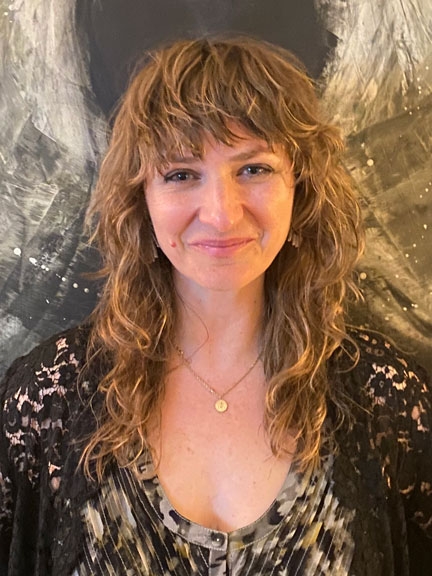Sophia Calvi
she/they
Director of Programs, Franklin Environmental Center

- Office
- Franklin Environmental Ctr Hillcrest 118
- Tel
- (802) 443-5068
- scalvi@middlebury.edu
As the Director of Programs, Sophia works closely with students, faculty and staff, as well as broader local and global communities, to continuously evolve sustainability. Her passion is holding space for us to dream into being the world we want to live in. Her work explores inner and outer sustainability, collective wellness and how we remember and practice our interconnectedness and interdependence.
As an undergraduate, Sophia took all the food classes at Middlebury! Bill McKibben’s first class “Local Food” shed light on her passion for cultivating collective wellbeing. She spent the summer of 2004 implementing her thesis work, which became the first children’s garden program at the Knoll. She then ventured out into the wider world of food systems, sustainability and wellness. Sophia returned to Middlebury in 2012 as the Food and Garden Educator to manage the Knoll and help develop a Food Studies program as well as the FoodWorks summer fellowship. They became the Director of Programs in 2019. Sophia earned a master’s degree in Food Culture and Communications at the University of Gastronomic Sciences in Italy and a BA in International Studies and Women & Gender Studies at Middlebury. She is a trained Koru mindfulness teacher and healings arts practitioner.
Courses Taught
ENVS 0101
Current
Reimagining Sustainability
Course Description
Reimagining Sustainability: Exploring Holistic Futures (Half Credit)
What does Sustainability mean and how does it apply to our campus and beyond? In this course students will deconstruct the mainstream views of sustainability and the systems that surround it. Using the United Nations Sustainable Development Goals and excerpts from climate thinkers such as Adrienne Marie Brown, Robin Wall Kimmerer, and Ayana Elizabeth Johnson as a framework, we will delve into themes surrounding an evolving paradigm shift. Students will explore how to redefine what sustainability could mean for a holistic future grounded in interdependence and interconnectedness and develop their climate communication and storytelling skillsets. Readings will include Johnson and Wilkinson, eds., All We Can Save: Truth, Courage, and Solutions for the Climate Crisis, Robin Wall Kimmerer, Braiding Sweetgrass, and Jeremy Caradonna, Sustainability: A History. 1.5 hours sem.
Terms Taught
INTD 1243
Climate Action for All
Course Description
Climate Action for All: Foundations, Paths, Skills
Vermont and China flooded, smoke from Canadian fires, record-breaking heat waves. Climate change is here with deeply unequal impacts. Yet there’s so much to do to reverse the tide while fostering adaptive, resilient communities. Everyone has a part to play. In this course, students from all backgrounds and interests will develop a baseline understanding of climate science, impacts, and approaches. Students will assess how the needs of the climate crisis match up with their own skills and passions. Hearing directly from stakeholders and leaders through lectures, discussions, and workshops, students will explore the many paths to just climate action. They will leave with an improved understanding of what kind of action is needed, where action is happening, and what their roles might be, all coupled with an enhanced skills toolkit. Pass/Fail
Terms Taught
Requirements

